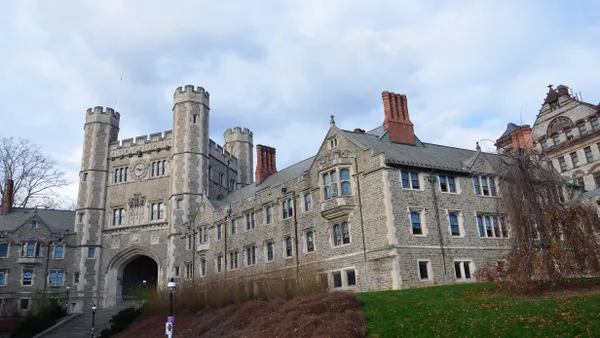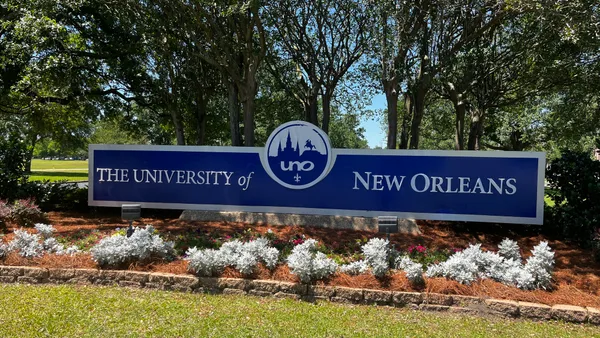Dive Brief:
- Pennsylvania lawmakers gave their network of state-owned universities a nearly 16% boost in operating money, $552.5 million, which system leaders are hailing as the largest one-year funding increase it’s ever received.
- The amount is incorporated into the state’s fiscal 2022-23 budget, which Gov. Tom Wolf, a Democrat, signed into law last week. It also includes a one-time investment of $125 million in federal aid for the Pennsylvania State System of Higher Education, or PASSHE.
- System Chancellor Dan Greenstein previously insinuated PASSHE’s recent merger — which combined six institutions into two — would help secure more state funding. State lawmakers would be inclined to reward efforts to fix PASSHE’s financial troubles, system leaders indicated.
Dive Insight:
Middling state investment for more than a decade largely caused PASSHE’s financial woes, observers have argued.
Lawmakers cut state funding to PASSHE around 2010, which coincided with a precipitous enrollment drop. Enrollment fell by about 25% since then, and faculty leaders and policy experts said the system’s subsequent tuition hikes, intended to help balance its budget, boxed out the contingent of low- and moderate-income students PASSHE was created to serve.
To help remedy the system’s shaky finances, Greenstein pursued the merger plan. It lumped together Bloomsburg, Mansfield and Lock Haven universities as Commonwealth University of Pennsylvania, and it combined California, Clarion and Edinboro universities as Pennsylvania Western University, nicknamed PennWest.
The two new institutions each have their own value propositions, with Commonwealth University focusing on stackable credentials and PennWest specializing in online education. The consolidation has been widely panned by faculty, as some professors said the system moved too quickly to implement it.
With the merger finalized, PASSHE now has 10 institutions.
The system enrolled about 88,600 students for fall 2021. In October, it asked for a 15% increase in state appropriations. And in April, its governing board voted to freeze in-state tuition, with Greenstein suggesting state lawmakers would need to bolster system funding for it to continue to stick with lower pricing.
PASSHE said the one-time investment of $125 million will be used in the system’s broader redesign.
The $125 million “will help these state-owned universities equip themselves to serve more students even better and expand credential programs for those who are looking to reskill or upskill,” Governing board chair Cynthia Shapira said in a statement.















